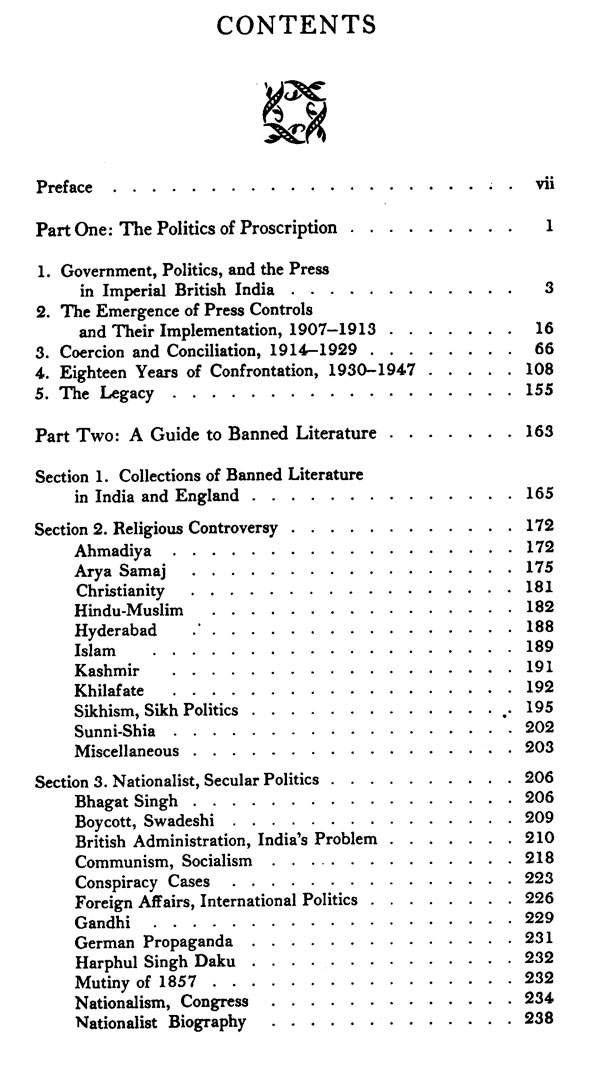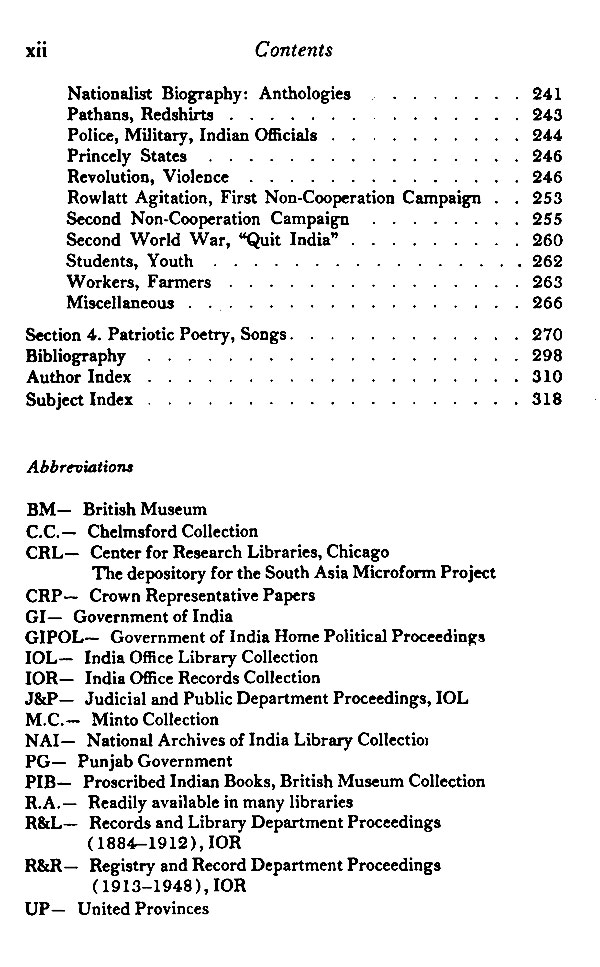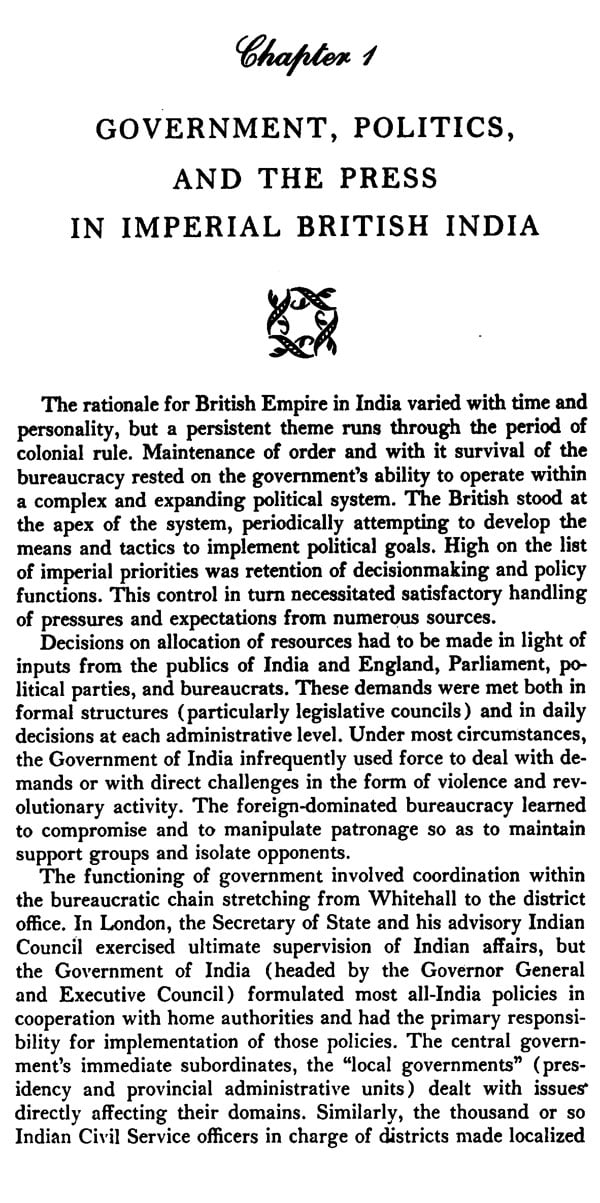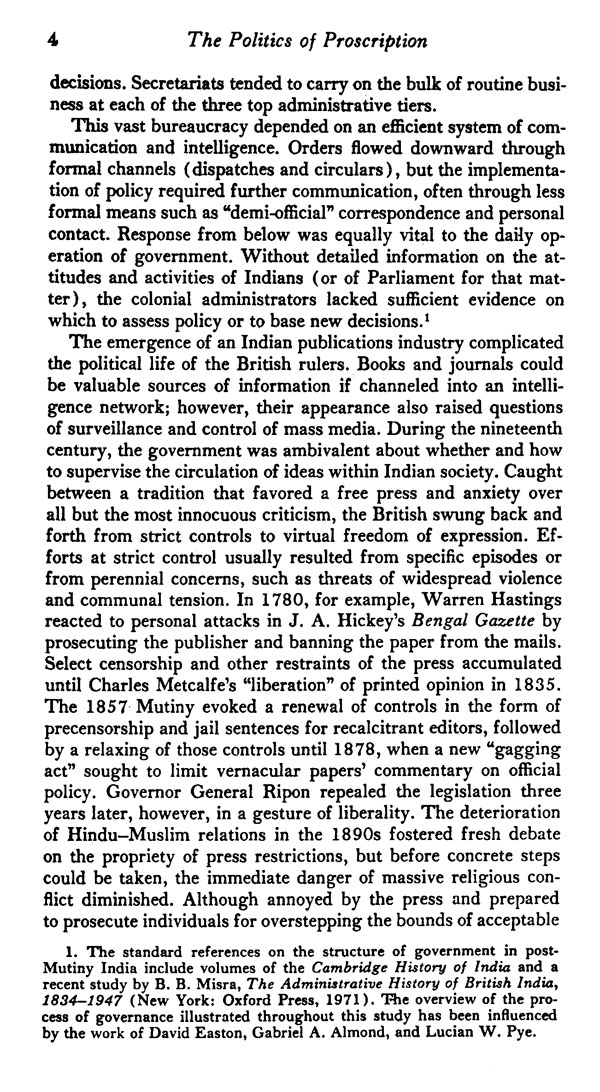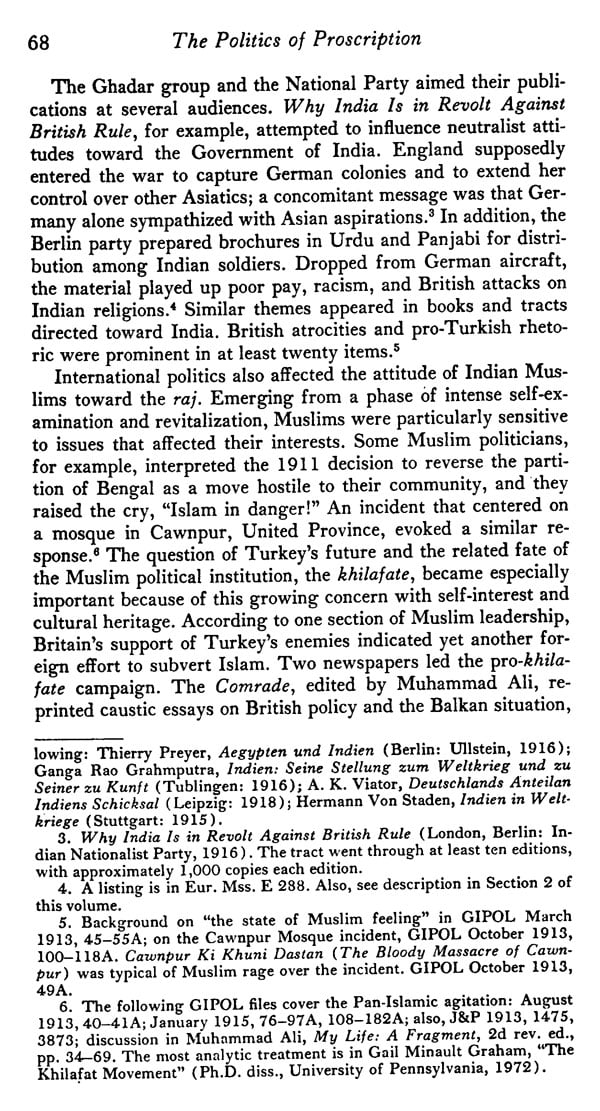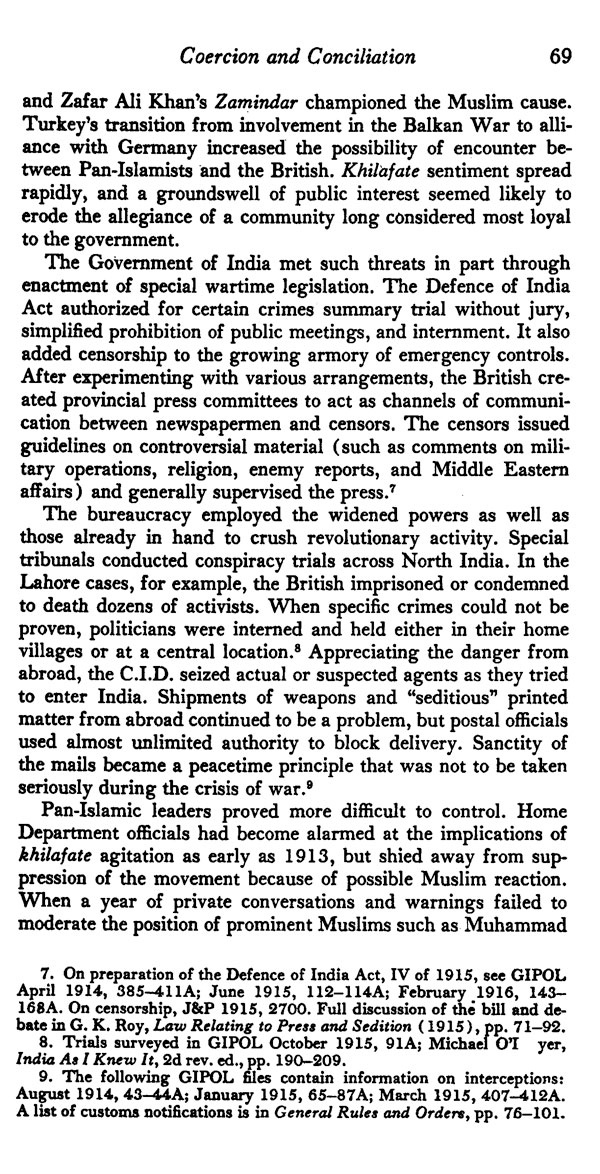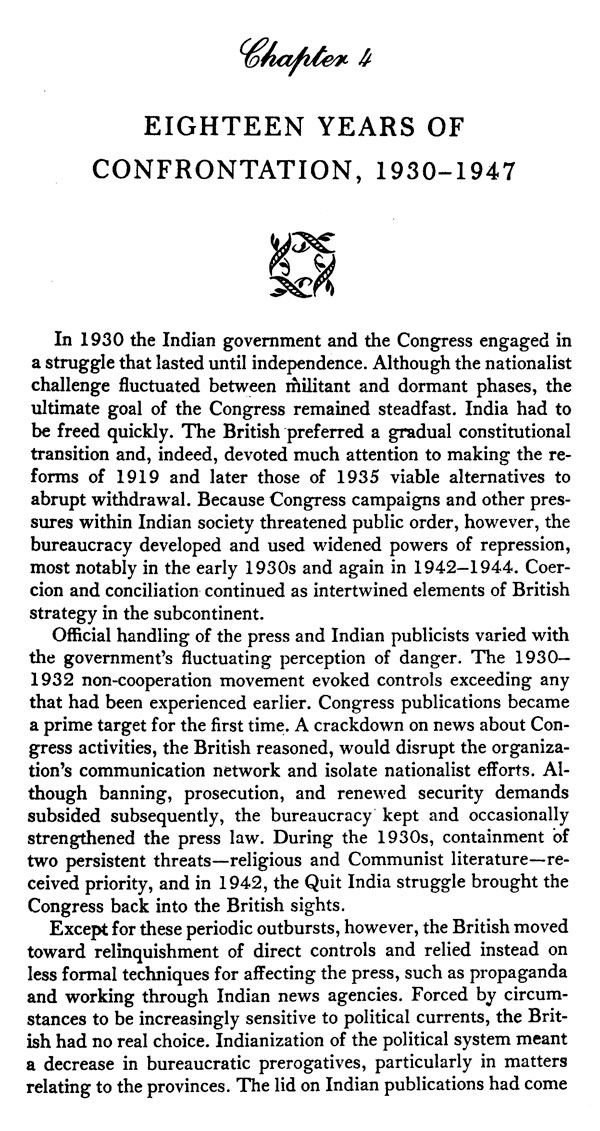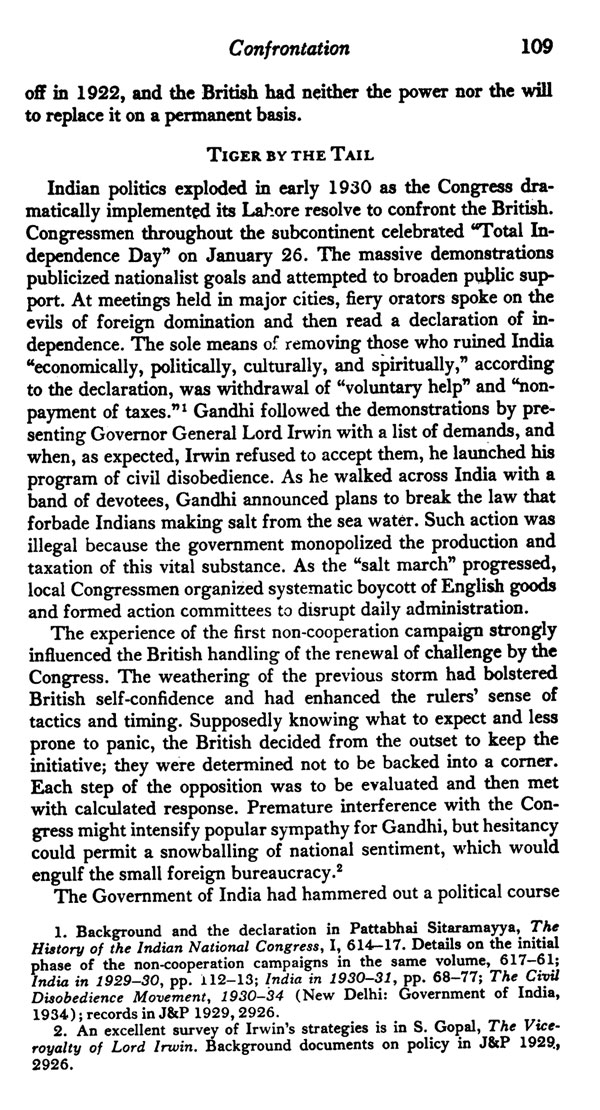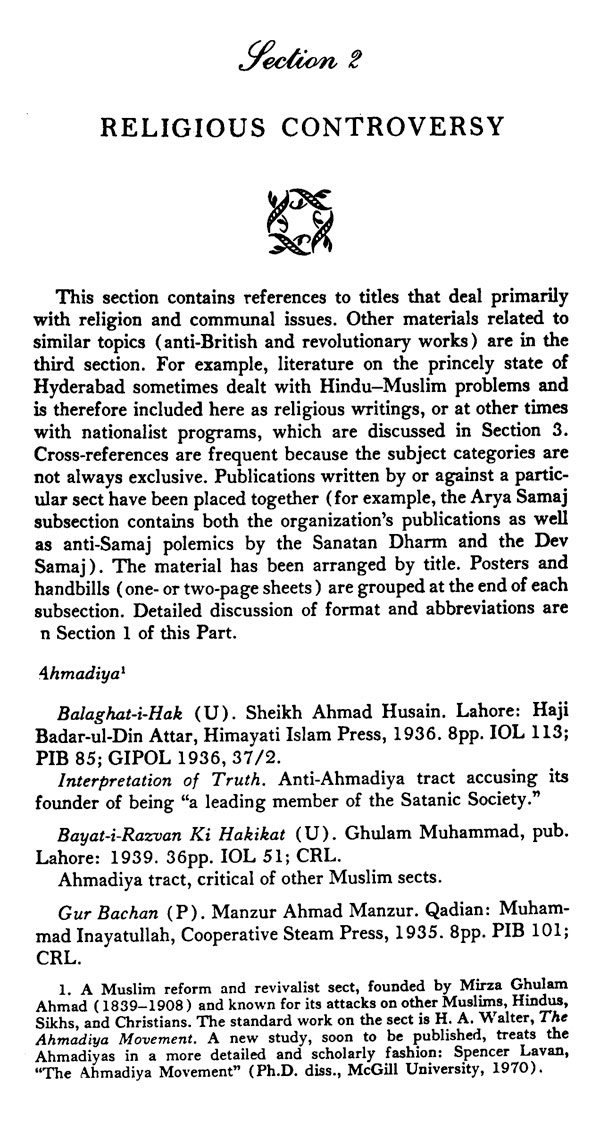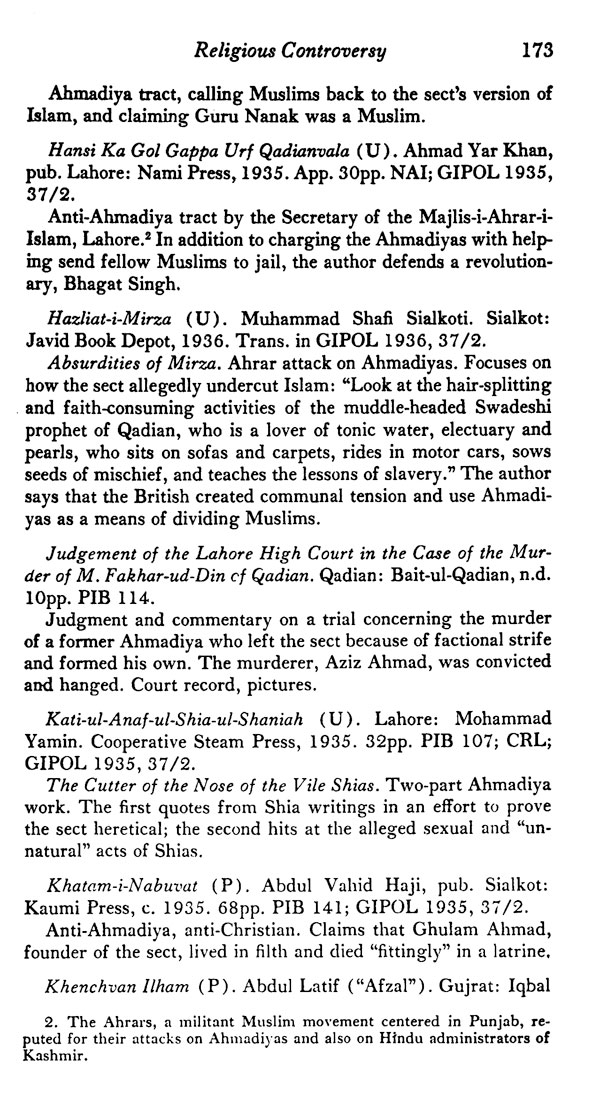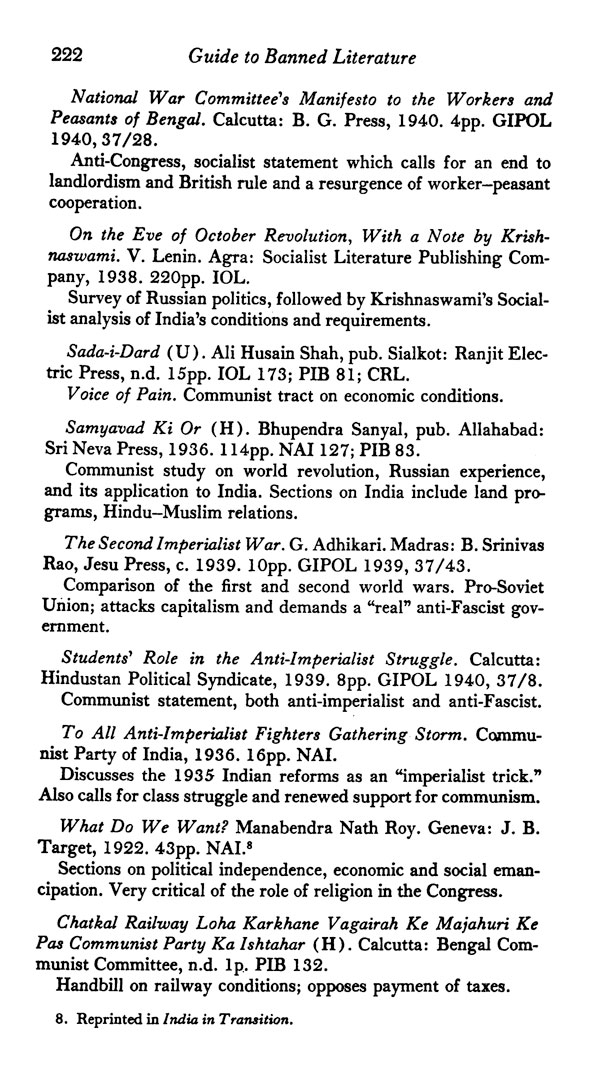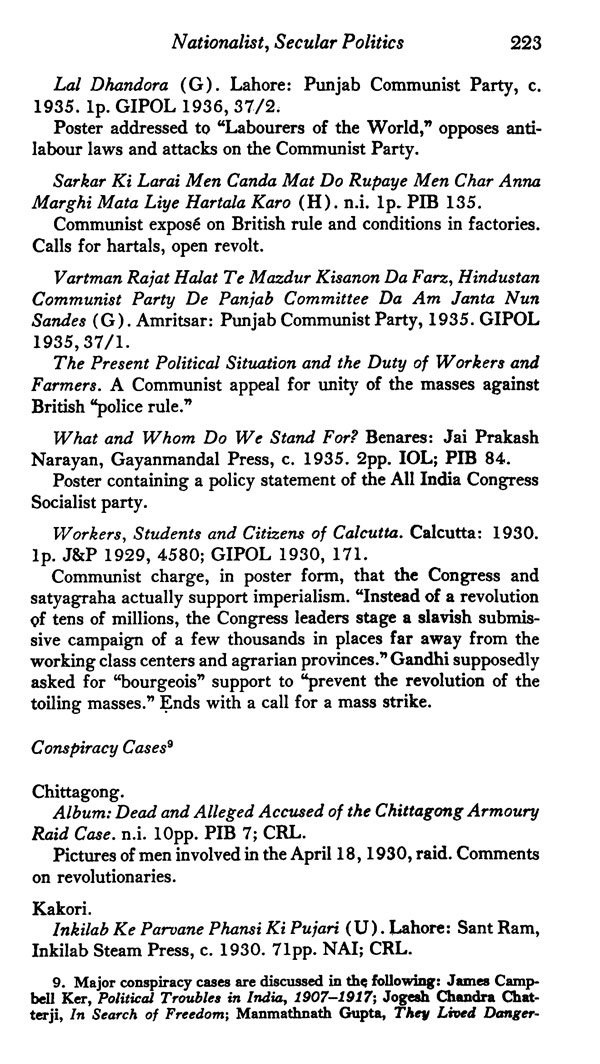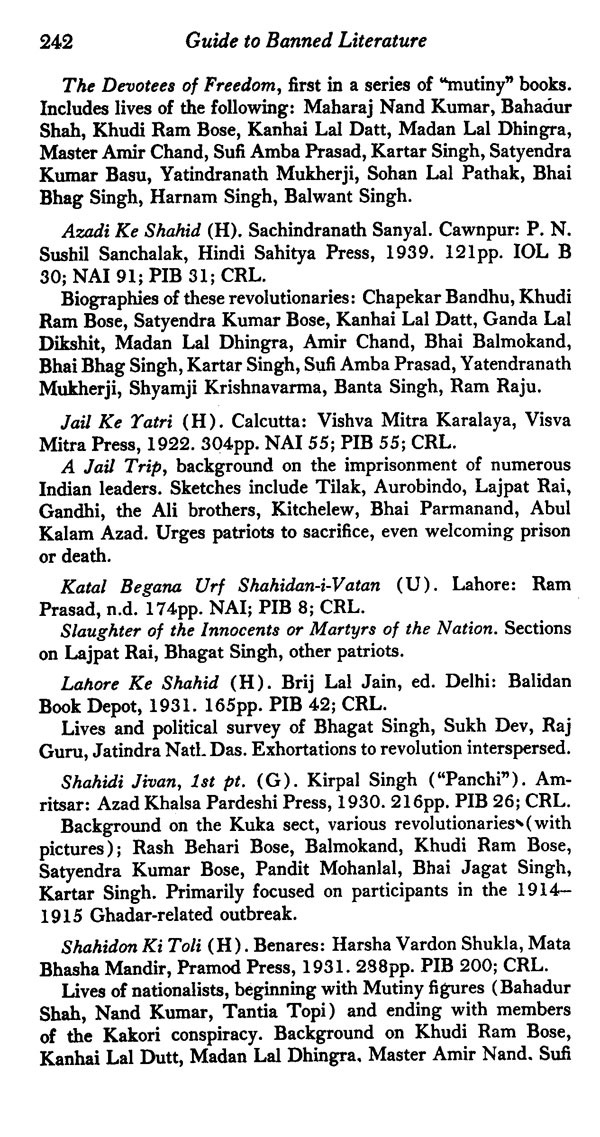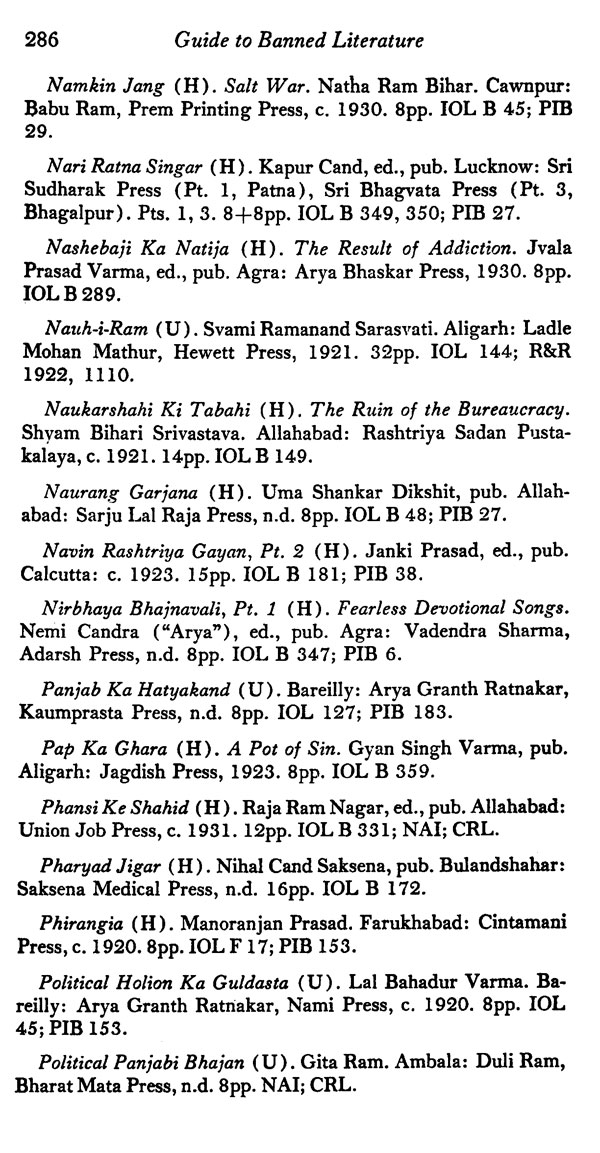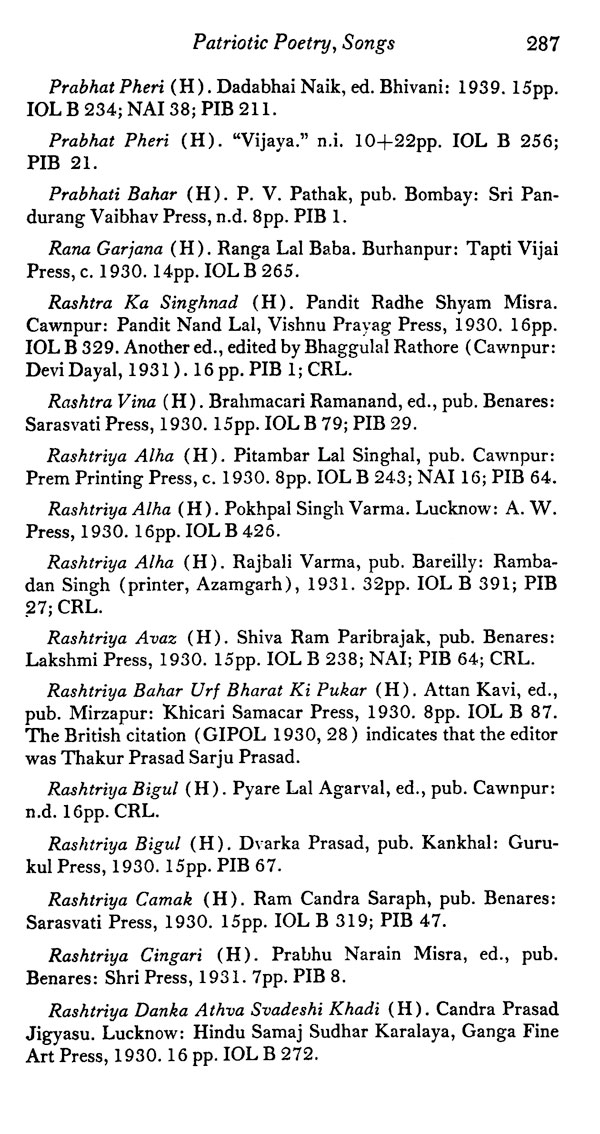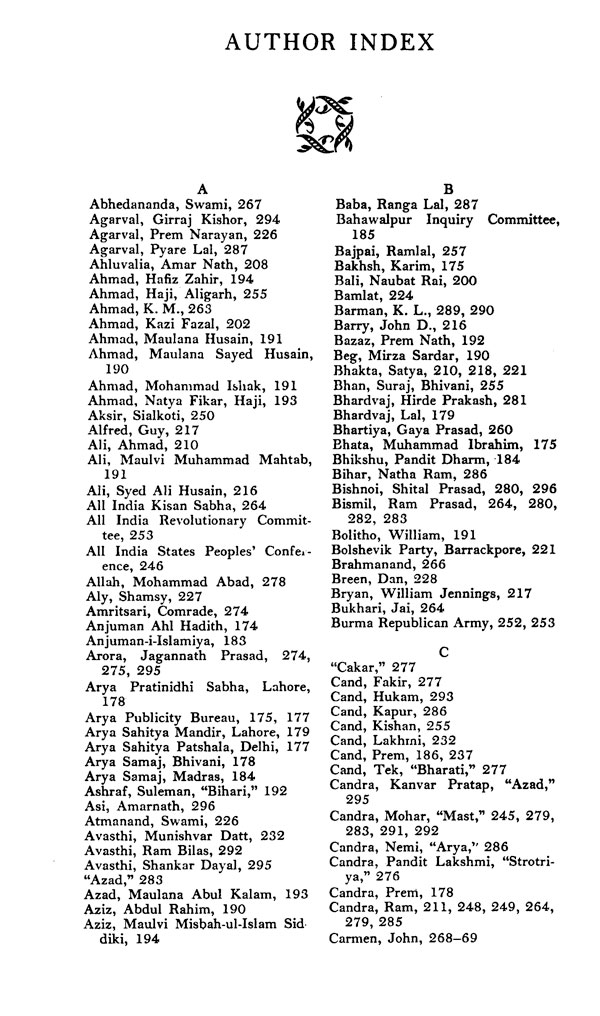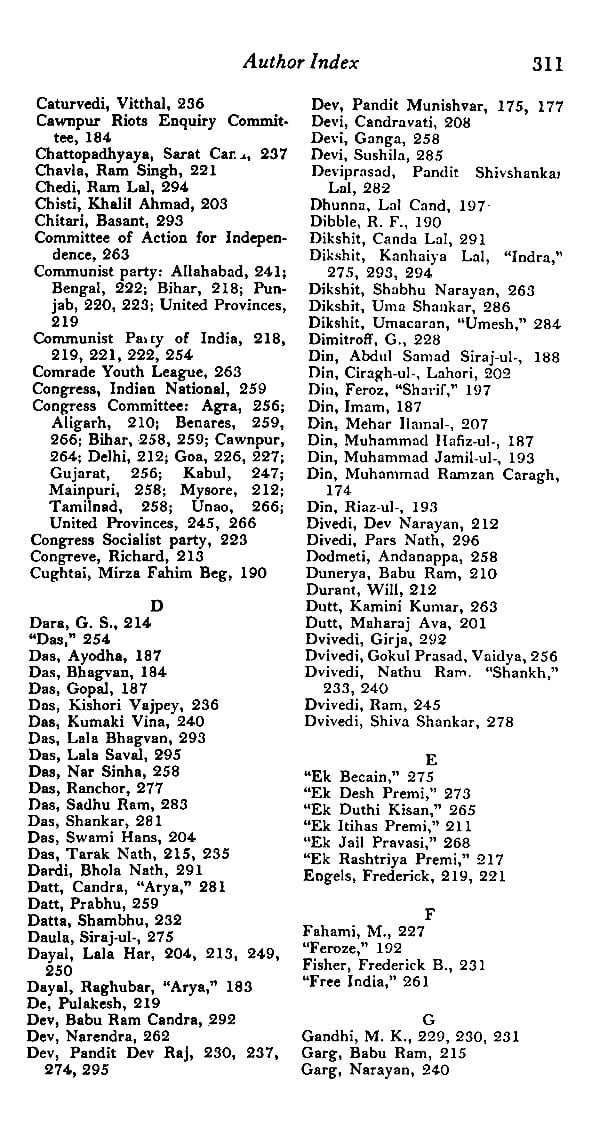
Banned- Controversial Literature and Political Control in British India 1907- 1947 (Manohar Classic)
Book Specification
| Item Code: | NAZ817 |
| Author: | N. Gerald Barrier |
| Publisher: | Manohar Publishers and Distributors |
| Language: | English |
| Edition: | 2021 |
| ISBN: | 9780826201591 |
| Pages: | 326 |
| Cover: | HARDCOVER |
| Other Details | 9.00 X 5.80 inch |
| Weight | 480 gm |
Book Description
Much has been written about the evolution of publishers freedom in countries such as UK, USA or Nazi Germany. For instance, in Britain by the nineteenth century, law and public opinion created an atmosphere conducive to virtually free exchange of opinion and news. But this same press liberty was not extended to its colonies. Historians usually begin their studies in the late 1700 AD and conclude with a short sketch on post-1900 developments. Lack of analysis of the latter period is particularly disturbing because the confrontation the ruler (the Raj) and the ruled after 1900 brought into focus the conflict between cherished British ideological traditions and the demands of control over a non-Western population. Censorship, banning, and other varieties of official interference with freedom of the Press also constitute key but little known elements in India's struggle for Independence.
This book which examines the Government—Press interaction during 1907-1947 is intended primarily as a contribution to our understanding of political developments within the British Empire in India. Although the issues and details relate to one region, the shifting rationale for interfering with printed opinion and the mechanisms developed for exercising control have universal implication. Research in this subject by the author led to a vast extent of banned works by the British in India, mystifying references in Govt. of India Home proceedings to proscription and banning. The extent of banned material is startling. The author hand listed the surviving material and then pieced together why and how works were seized. This volume has served for long as an invaluable resource for historians and research scholars of colonial South Asia.
N. Gerald Barrier was Professor of History at the University of Missouri, Columbia, U.S.A. He wrote and edited several publications including The Sikhs and their Literature, 1849-1919 (1970); The Census in British India: New Perspectives (1981) and India and America: American Publishing on India 1930-1985 (1986). He passed away in 2010.
The relationship between government and the press lies at the heart of the political process. Perhaps inevitably, government Officials and journalists throughout the world often clash over the nature of information passed on to the public. Sometimes their struggles produce social or legal safeguards to freedom of expression; at other times, the consequences include censorship and banning of publications judged dangerous to the "national interest," "security," or "human decency."
Much has been written on specific episodes in the history of the press or about the evolution of publishers' freedom in countries such as England, the United States, and Nazi Germany. The extension of national attitudes and legal norms from the homeland to colonial areas, however, has received far less attention. British rule in India is a case in point. By the nineteenth century, law and public opinion in England created an atmosphere conducive to virtually free exchange of opinion and news. What happened when Englishmen in India or Indians themselves attempted to exercise a similar degree of printed expression? The existing accounts of press liberty in the Indian context do not present a satisfactory answer. Historians usually begin their studies in the late 1700s, focus on now well-known incidents of censor-ship and imprisonment during the next century, and conclude with a short sketch, if any, on post-1900 developments.' Lack of analysis of the latter period is particularly disturbing because the confrontation between ruler (the raj) and ruled after 1900 brought into focus the conflict between cherished British ideological traditions and the demands of control over a non-Western population. Censorship, banning, and other varieties of official interference with freedom of the press also constitute key but little-known elements in India's struggle for independence.
This examination of government—press interaction, 1907-1947, is intended primarily as a contribution to our understanding of political developments within the British Empire in India. Although the issues and details relate to one region, it is anticipated that the study will be useful for a broader audience. The dilemmas that confronted colonial bureaucrats and Indian publicists were not unique. How and why the British made certain decisions, and the results of those decisions, should have implications for anyone who is concerned with other dimensions of freedom of the press in any part of the world. The shifting rationale for interference with printed opinion and the mechanisms developed for exercising that control have universal implications.
Book’s Content and Sample Pages